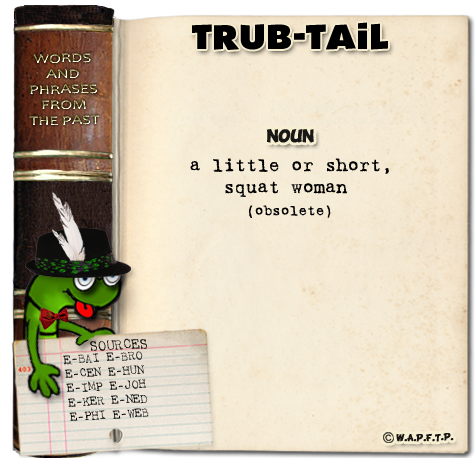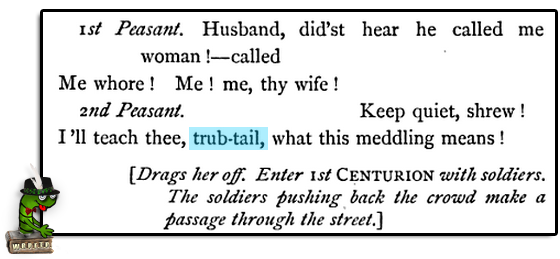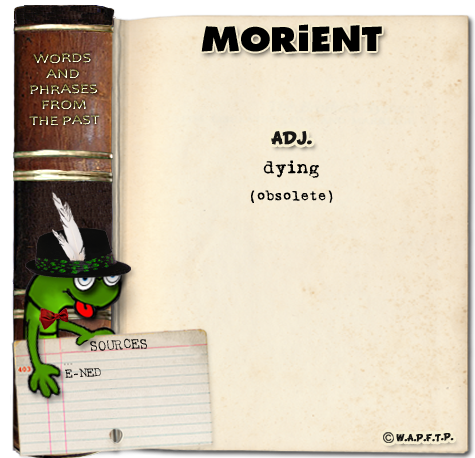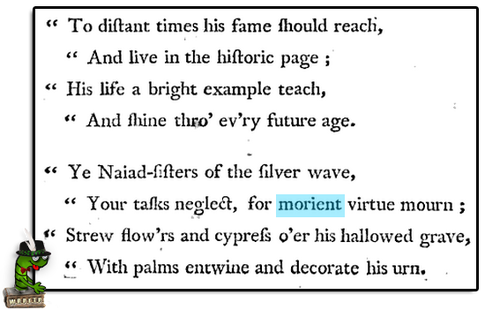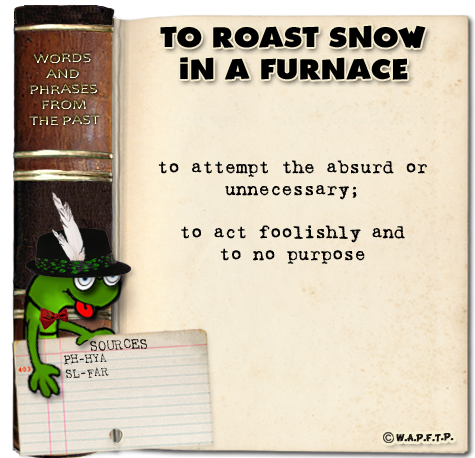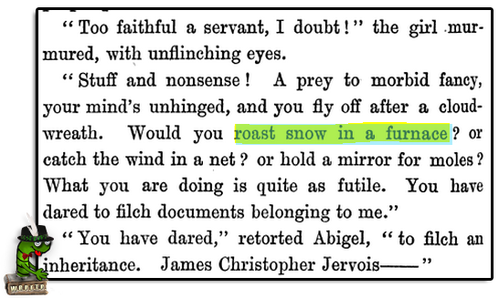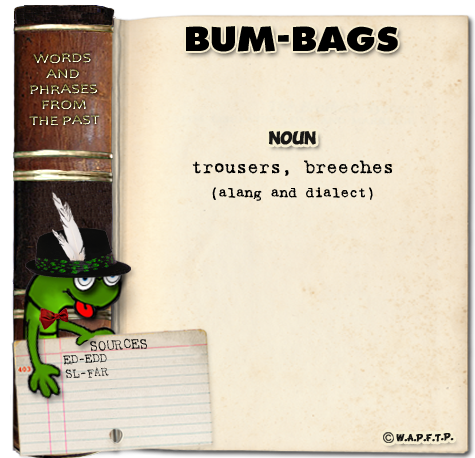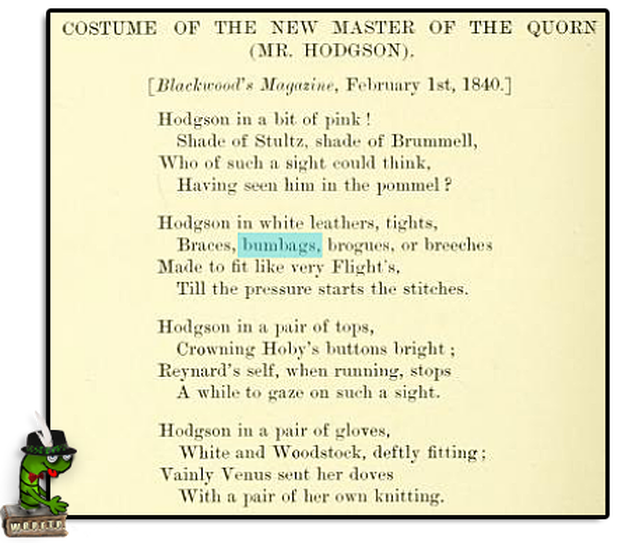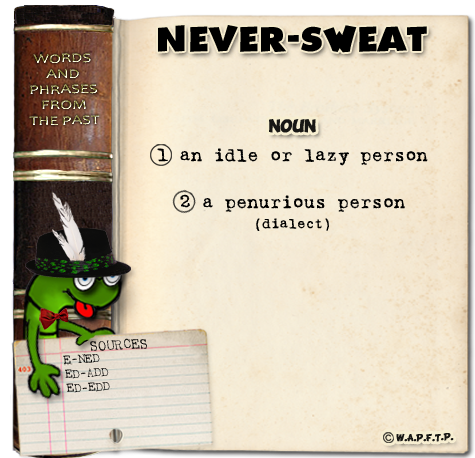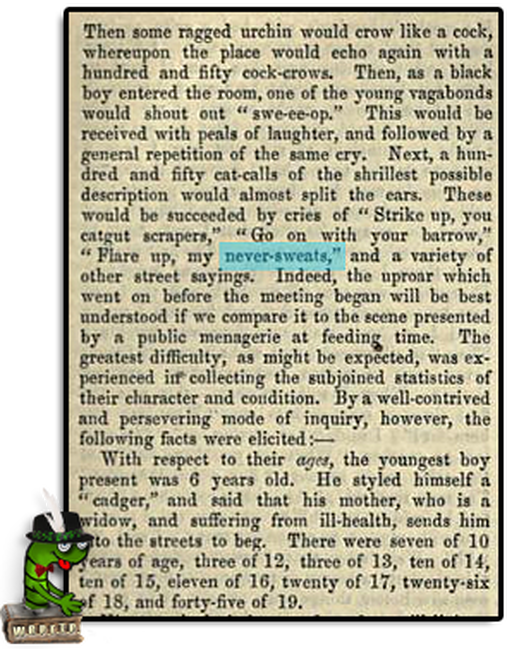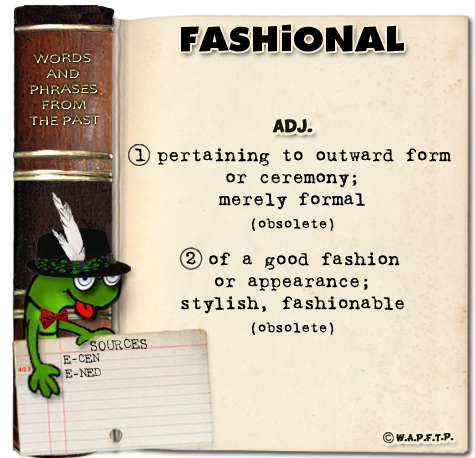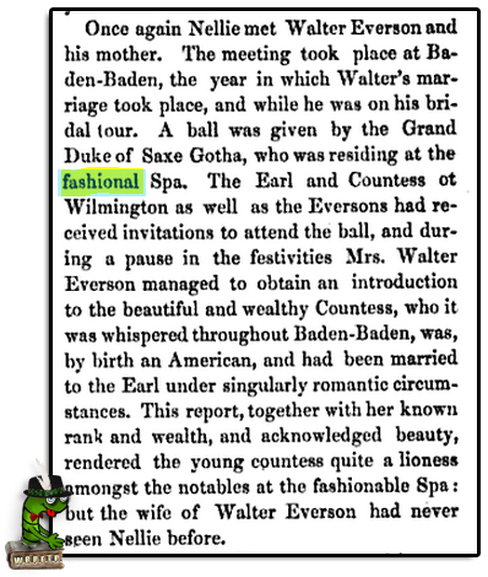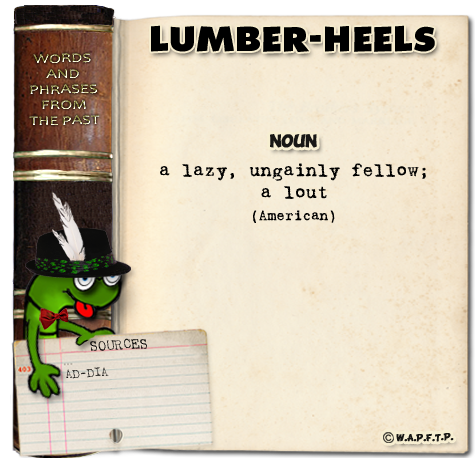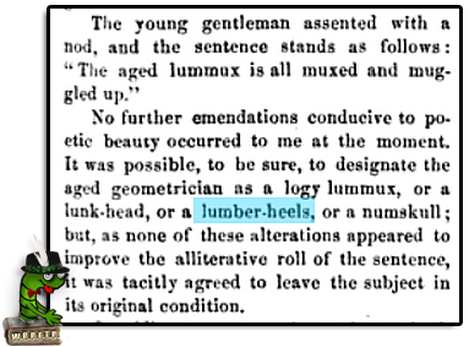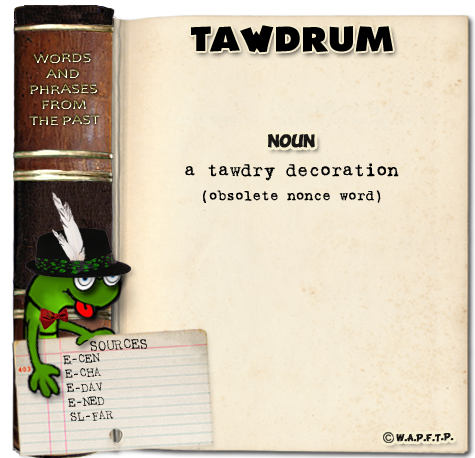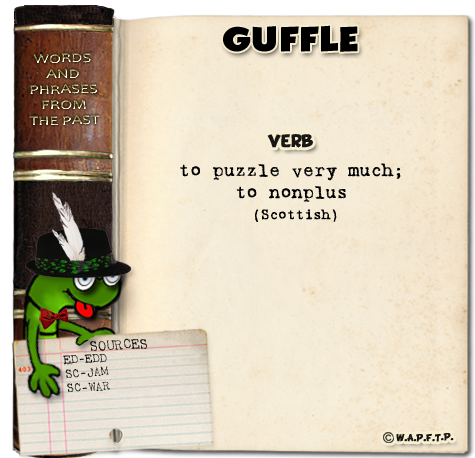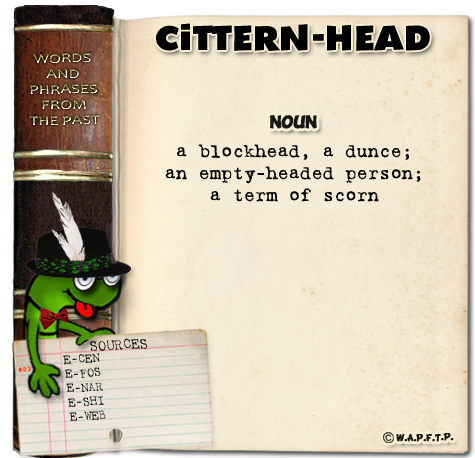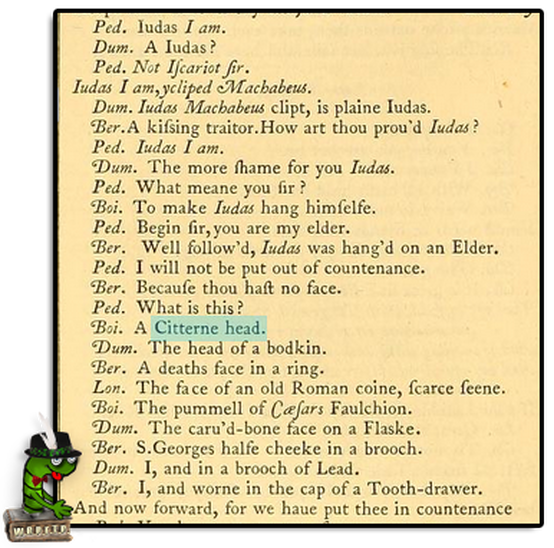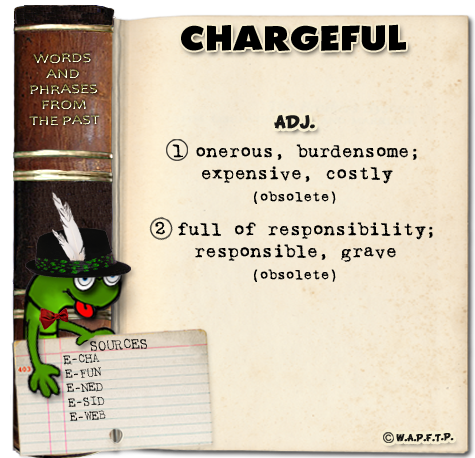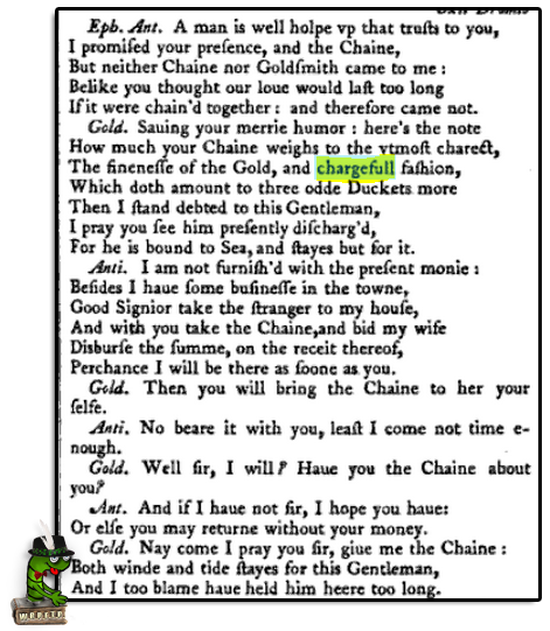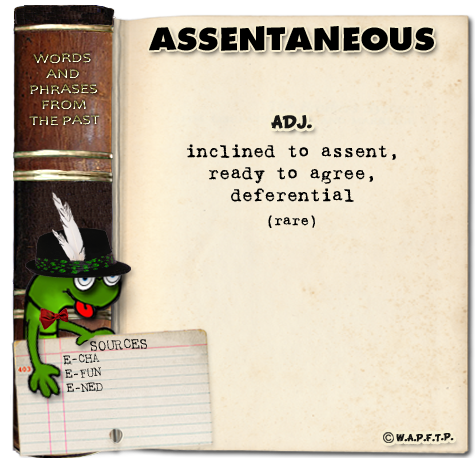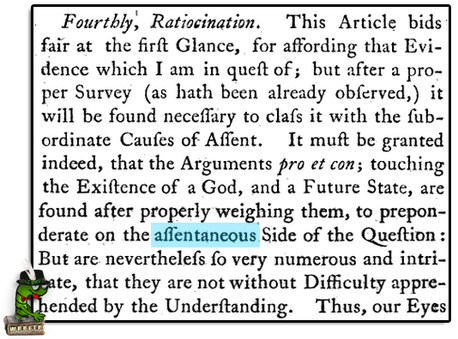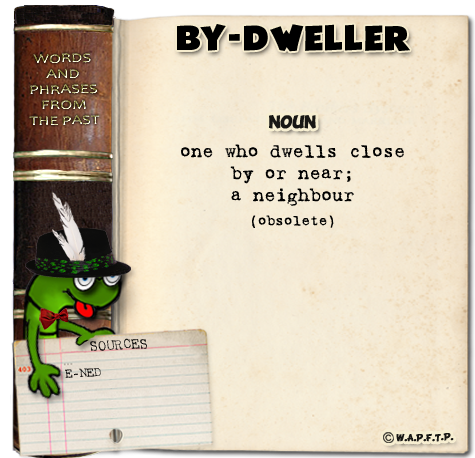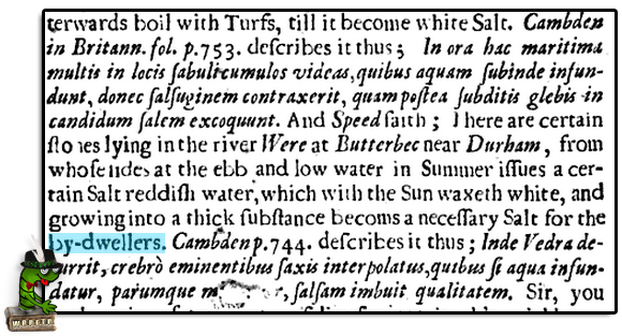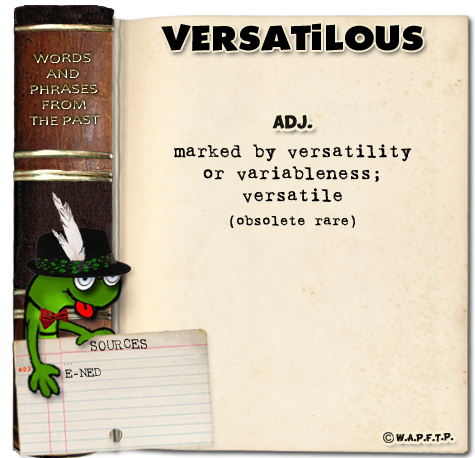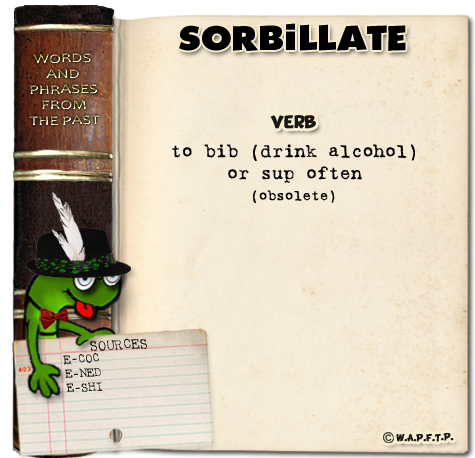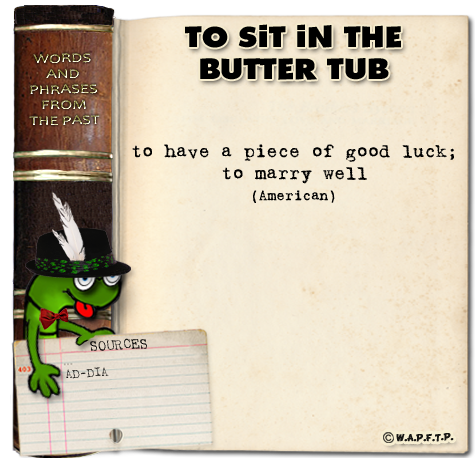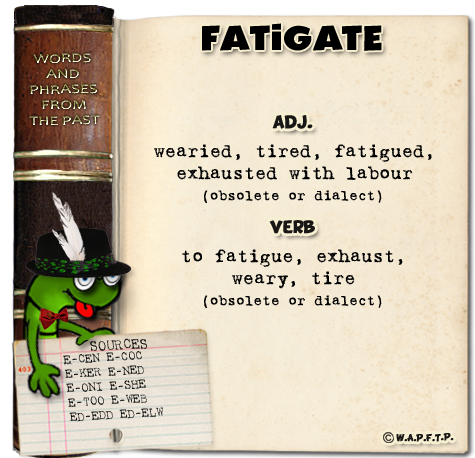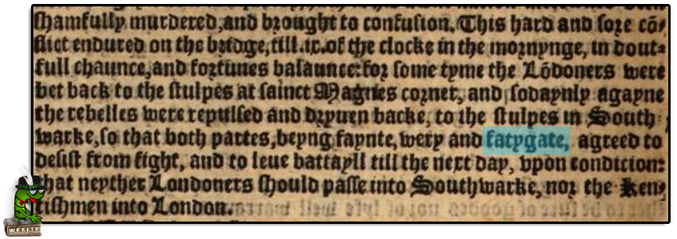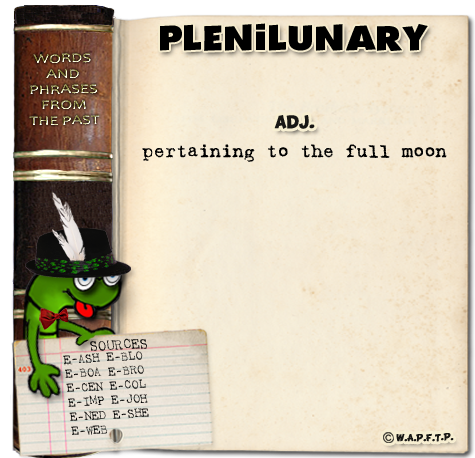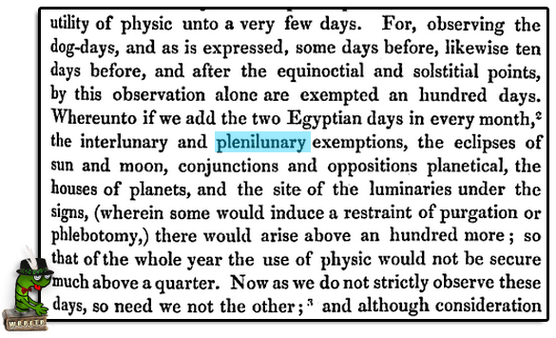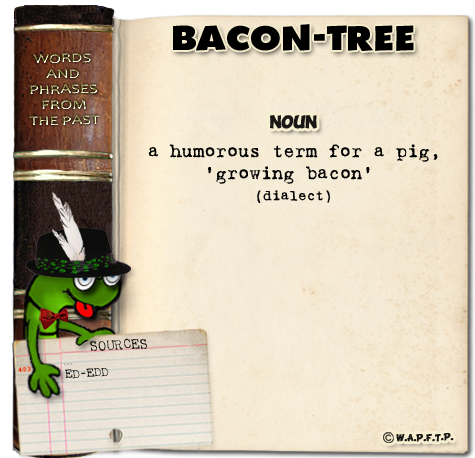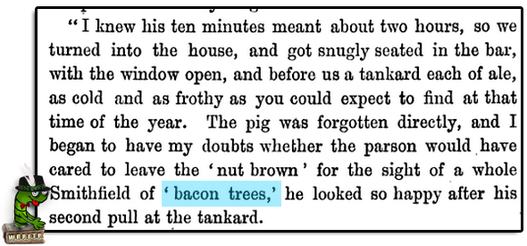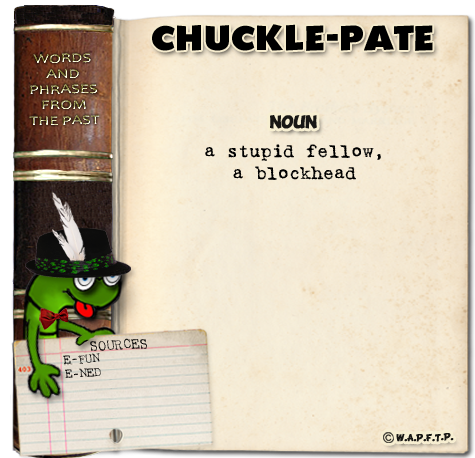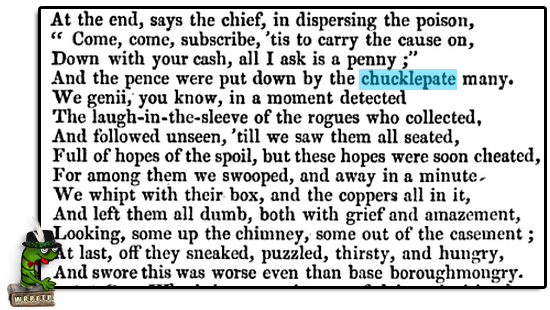|
in some of the older dictionaries, trub is shown as having the same definition; most of them show Ainsworth is their source From: Robert Ainsworth's Dictionary, English and Latin A New Edition, Edited by Robert Morell, 1773 From: The Trinity:
A Nineteenth Century Passion-Play By Karl Pearson, 1882 Act III, Scene VI P. 198
0 Comments
from Latin morientem, pr. pple. of morī to die From: Saint Andrews;
Or, A Sentimental Evening Walk near the Ruins of that Ancient City. By John Copland Written in Autumn 1775 Printed 1776 Elegiac to the Memory of an Honest Man. P. 63 From: A Dictionary of English Phrases, Albert M. Hyamson, 1922 "From an ancient Greek proverb." From: Abigel Rowe.
A Chronicle of the Regency. By The Hon. Lewis Wingfield, Vol. II, 1883 Chapter VII, My Lord Plays His Cards From: The Annals of the Warwickshire Hunt
From 1795 to 1895 From Authentic Documents by Sir Charles Mordaunt, and the Rev. W. R. Verney Volume I, 1896 P. 308 DEFINITIONS CONTINUED noun 3. a council worker ...1970s Aust. sl. From: London Labour and the London Poor
By Henry Mayhew Volume I, 1861 The Street-Folk. Meeting of Thieves P. 419 from fashion (n.) + -al From: The Household Monthly
Vol. II. From April 1859 to October, 1859 Wild Nell, the White Mountain Girl, Chapter XXIV From: Appleton's Journal
Of Literature, Science, and Art Volume Twelfth From No. 276 to No. 301 inclusive. July 4 to December 26, 1874 An October in Yankee-Land. Francis Gerry Fairfield P. 495 from tawdry, with Latin ending: cf. nostrum From: A New English Dictionary on Historical Principles, James Murray, 1888-1933
so called because the cittern (musical instrument) usually had a grotesque head carved at the extremity of the finger-board From: Shakespeare As put forth in 1623.
A Reprint of Mr. William Shakespeares Comedies, Histories, & Tragedies Published According to the True Originall Copies.1864 Loves Labour's Lost P. 142 from charge (n.) + -ful From: Shakespeare: A Reprint of his Collected Works as put forth in 1623.
Part I Containing the Comedies. John Heminge, Henry Condell, 1862 The Comedie of Errors. Actus Quartus. Scoena Prima from late Latin assentāneus (f assentīri to assent) + -ous From: A Theological Survey of the Human Understanding.
By Robert Applegarth, 1776 Chapter III. Of the True Foundation of Theology. P. 98 from by- + dweller From: Philosophical Transactions
Edited by John Martyn (Londres), James Allestry (Londres), Henry Oldenburg Volume VIIII. For the Year 1674. Some Inquiries and Suggestions concerning Salt for Domestique Uses. P. 51 from Latin versātilis versatile adj. + -ous From: A New English Dictionary on Historical Principles, James Murray, 1888-1933
Pa. ppl.: from Latin fatīgātus, pa. pple. of fatīgāre to fatigue Verb: from Latin fatīgāt- ppl. stem of fatīgāre to fatigue From: The Union of the Two Noble and Illustre Famelies of Lancastre and Yorke
By Edward Halle, 1550 from Latin plēnilūnium full moon From: Sir Thomas Browne's Works
Edited by Simon Wilkin Volume III, 1835 Book IV. Of Many Popular and Received Tenets Concerning Man. Chapter XIII. Of the Canicular or Dog-Days. P. 79 From: Tales and Sketches of Lancashire Life
By Ben Brierley, 1884 The Marlocks of Merriton; Christmas at Ringwood Hall Chapter II. P. 146 From: Blackwood's Edinburgh Magazine
Volume III. April - September, 1820 The Building of the Palace of the Lamp. P. 677 |
Archives
September 2021
|
